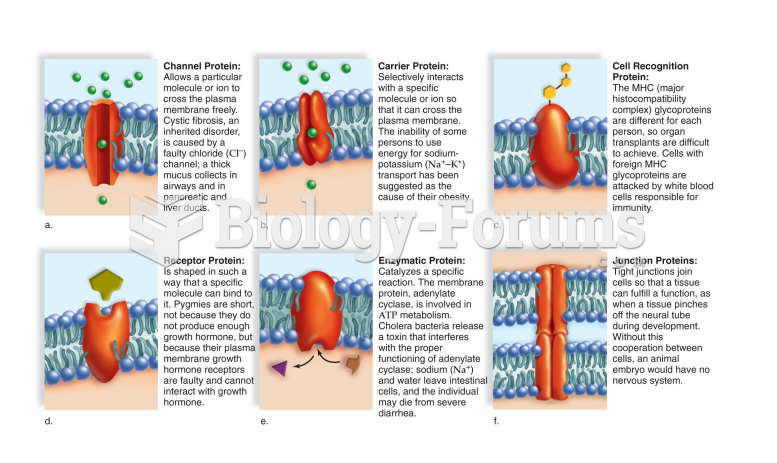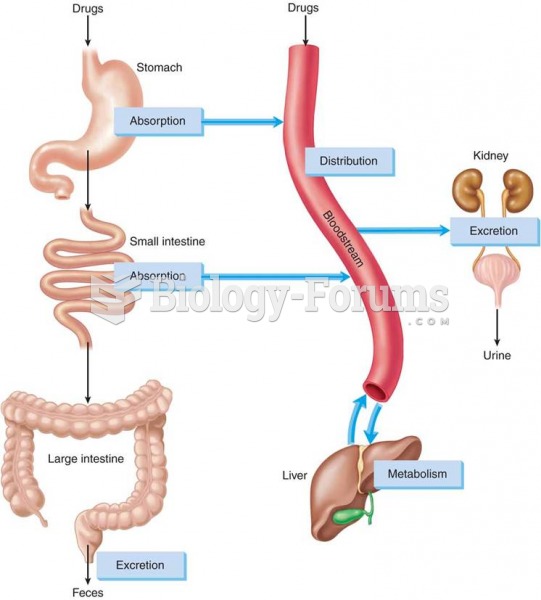Answer to Question 1
Food entering the stomach stimulates cells in the stomach wall to release the hormone gastrin. Gastrin, in turn, stimulates the stomach glands to secrete the components of hydrochloric acid. When pH 1.5 is reached, the acid itself turns off the gastrin-producing cells; they stop releasing gastrin, and the glands stop producing hydrochloric acid.
The presence of chyme stimulates the cells of the duodenual wall to release the hormone secretin into the blood. When secretin reaches the pancreas, it stimulates the pancreas to release its bicarbonate-rich juices. Thus, whenever the duodenual signals that acidic chyme is present, the pancreas responds by sending bicarbonate to neutralize it. When the need has been met, the cells of the duodenal wall are no longer stimulated to release secretin, the hormone no longer flows through the blood, and the pancreas no longer receives the message and stops sending pancreatic juice. Nerves also regulate pancreatic secretions.
Fat in the intestine stimulates cells of the intestinal wall to release the hormone cholecystokinin (CCK). This hormone travels by way of the blood to the gallbladder and stimulates it to contract, which releases bile into the small intestine. Cholecystokinin also travels to the pancreas and stimulates it to secrete its juices, which releases bicarbonate and enzymes into the small intestine. Once the fat in the intestine is emulsified and enzymes have begun to work on it, the fat no longer provokes release of the hormone, and the message to contract is canceled.
Answer to Question 2
The pancreas does know what its owner has been eating, and it secretes enzyme mixtures tailored to handle the food mixtures that have been arriving recently (over the past several days). Enzyme activity changes proportionately in response to the amounts of carbohydrate, fat, and protein in the diet. If a person has been eating mostly carbohydrates, the pancreas makes and secretes mostly carbohydrates; if the person's diet has been high in fat, the pancreas produces more lipases; and so forth. Hormones from the GI tract, secreted in response to meals, keep the pancreas informed as to its digestive tasks. The day or two lag between the time a person's diet changes dramatically and the time digestion of the new diet becomes efficient explains why dietary changes can upset digestion and should be made gradually.







